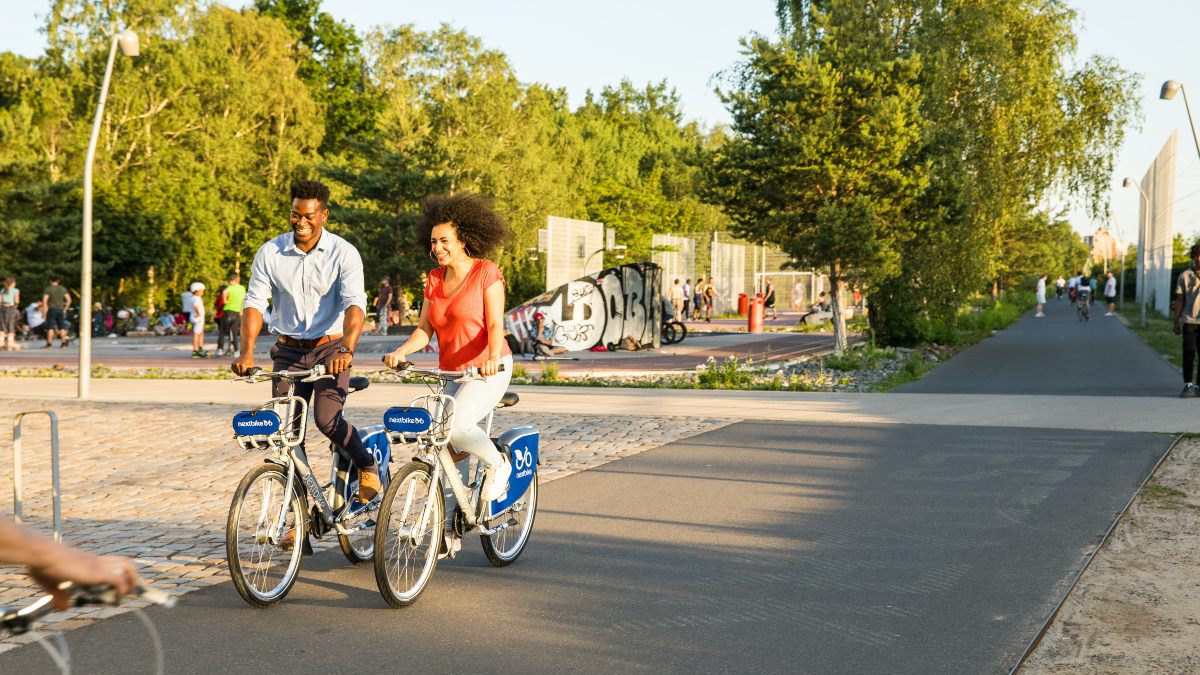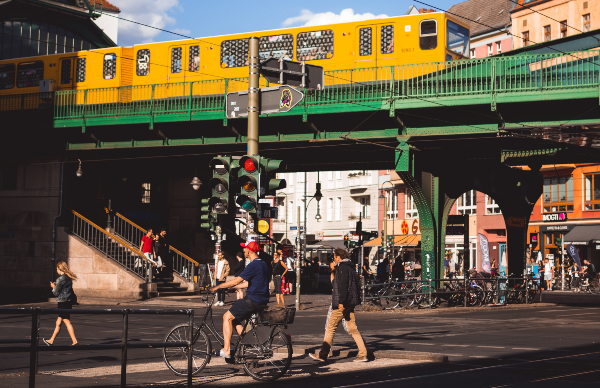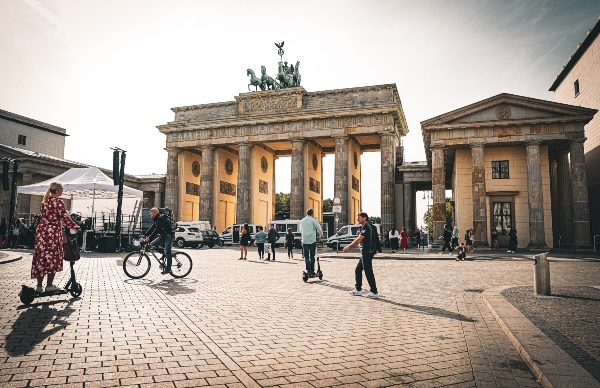
Germany must make concrete plans to become a cycling nation by 2030
Germany needs a well-detailed strategy to achieve its goal of becoming a cycling nation by 2030. As federal elections loom, ADFC has presented an action plan to triple cycling levels.
Allgemeiner Deutscher Fahrrad-Club (ADFC) has published a new action plan for the federal government to dramatically increase cycling in Germany. The plan, entitled “So geht #Fahrradland: Mit dem Fahrrad zur Verkehrswende”, aims to triple cycling levels across the country, enabling an effective modal shift with the ambition to make Germany a leading cycling nation by 2030. With federal elections set to take place in September 2021, now is a critical time for cycling advocates and organisations to demand long-term, clearly-defined plans for cycling from incoming policymakers.
"In the context of the climate crisis and congested metropolitan regions, a rapid tripling of cycling - combined with the expansion of public transport and walking - is the only way forward," said ADFC Vice-Chair Rebecca Peters, speaking at the plan’s launch event in May 2021. “Germany has the potential to become a top cycling country, like the Netherlands, with a 30 per cent modal share for cycling and millions of daily bicycle commuters. We are absolutely certain of that”.

Call for action
In April 2021, the German Federal Government set out a strategy to become a cycling nation by 2030 as part of its National Cycling Plan 2030. ADFC, which is a member of the European Cyclists’ Federation (ECF), initially welcomed the government’s ambition but criticised the lack of a concrete action plan. Similarities in the latest plan can be made to Germany’s previous National Cycling Plan, which failed to achieve its goals, taking too long to act upon its proposed commitments. As a result, cycling levels only increased from 10% to 11% in Germany over the past ten years.
According to ADFC, Germany will not become a cycling nation without a fundamental reform of traffic laws, doubling federal funding for cycling and establishing of a federal institute for cycling research.
The latest plan proposed by the outgoing federal government aims for a 15% share of cycling. ADFC, however, wants to see cycling levels surge to the scale of the Netherlands, increasing the current share from 11% to 30%. ECF fully supports ADFC’s proposed targets and strongly reiterates their point that clearly-defined, detailed planning for cycling is required in order to achieve them.
“To become a cycling country in nine years, you must be serious about promoting and enabling cycling,” emphasised Jill Warren, CEO of ECF. “This means not just formulating plans and proposals, but taking concrete action.”
Increasing federal investments
The federal government has committed to investing €1.45 billion in cycling projects by 2023. This will not be enough to achieve a true modal shift, according to ADFC, who have instead demanded a permanent increase of the federal budget from €350 million to €850 million per year.
This money must be earmarked for cycle path networks, safe intersections, cycling fast lanes, bicycle parking garages and the expansion of long-distance cycle routes for tourists. ADFC has also proposed an agreement between the federal government and the federal states, which would make seamless cycle networks obligatory.
Cycling will also need a staff capacity comparable to that of other modes of transport at the federal level. ADFC has demanded that the staff capacity in the Federal Ministry of Transport and Digital Infrastructure (BMVI) and subordinate federal authorities should be increased to at least 100 people.

Source: unsplash.com
Reforming road traffic laws
As highlighted at the launch event, the most urgent political task for mobility is the fundamental reform of the German traffic law and technical regulations in line with "Vision Zero”, whereby 30 km/h should become the default in built-up areas.
“The next federal government must overcome its rigid stance on 30 km/h as the standard speed if it wants project cycling nation to be more than just PR.", asserted Peters.
Municipalities should be able to create protected cycle lanes more easily and redesign lanes and parking spaces without having to justify this with traffic counts and accident data.
“Why isn't there a 30 km/h speed limit standard in municipalities? Municipalities would then need to justify the establishment of a 50 km/h exception where they think it is suitable. We want to give the municipalities more choice,” said Anton Hofreiter, Chairman of the Parliamentary Group of Alliance 90/The Greens in the German Parliament.
Cross-party support for cycling
Andreas Scheuer, Federal Minister of Transport and Digital Infrastructure, said that the new National Cycling Plan is a strong sign for cross-part support for cycling. “We have a cross-party consensus to create a good climate for cycling in Germany and will certainly use it in the future,” claimed Scheuer. “The most important thing is to have a seamless network of cycle paths that inspires people to cycle.”
Anke Rehlinger, Deputy Minister President of Saarland, suggested that a lot of progress could already be made if the points that all parties agreed on were implemented.
German federal elections
Rebecca Peters declared that ADFC will hold the Federal Government to its word. Becoming a cycling nation is not only possible but crucial for turning the tide on climate change. “We will now get actively involved in the federal election campaign”, she concluded.
Jill Warren, who put the spotlight on successful European campaigns and mobility plans, highlighted, “Cycling is quality of life. That you can win political elections with plans to improve cycling that proves that a majority of people are in favour even of seemingly unpopular measures such as the redistribution of public space.”
Download the online version of the action plan here.
Cover photo source: unsplash.com
Regions:
Contact the author
Recent news!
Upcoming events
Contact Us
Avenue des Arts, 7-8
Postal address: Rue de la Charité, 22
1210 Brussels, Belgium









